Ethan Marx
A Neural Network-Based Search for Unmodeled Transients in LIGO-Virgo-KAGRA's Third Observing Run
Dec 27, 2024



Abstract:This paper presents the results of a Neural Network (NN)-based search for short-duration gravitational-wave transients in data from the third observing run of LIGO, Virgo, and KAGRA. The search targets unmodeled transients with durations of milliseconds to a few seconds in the 30-1500 Hz frequency band, without assumptions about the incoming signal direction, polarization, or morphology. Using the Gravitational Wave Anomalous Knowledge (GWAK) method, three compact binary coalescences (CBCs) identified by existing pipelines are successfully detected, along with a range of detector glitches. The algorithm constructs a low-dimensional embedded space to capture the physical features of signals, enabling the detection of CBCs, detector glitches, and unmodeled transients. This study demonstrates GWAK's ability to enhance gravitational-wave searches beyond the limits of existing pipelines, laying the groundwork for future detection strategies.
Rapid Likelihood Free Inference of Compact Binary Coalescences using Accelerated Hardware
Jul 26, 2024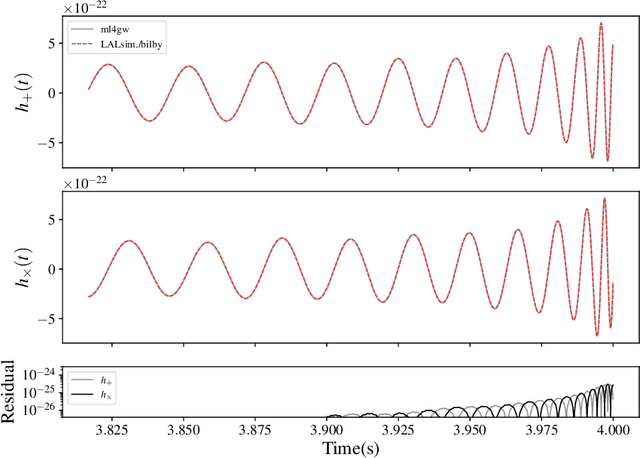
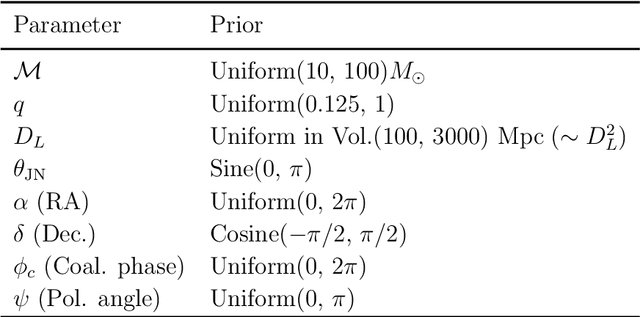
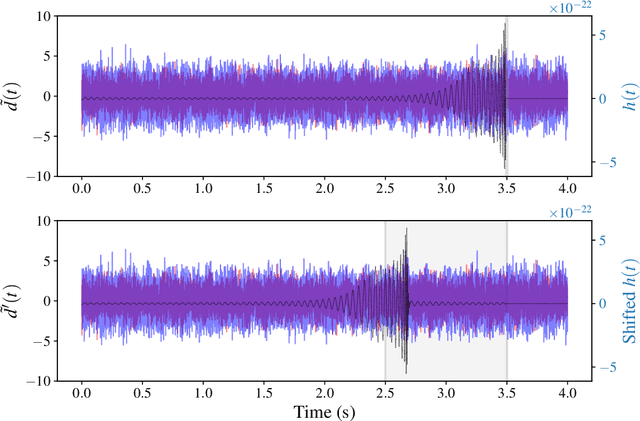
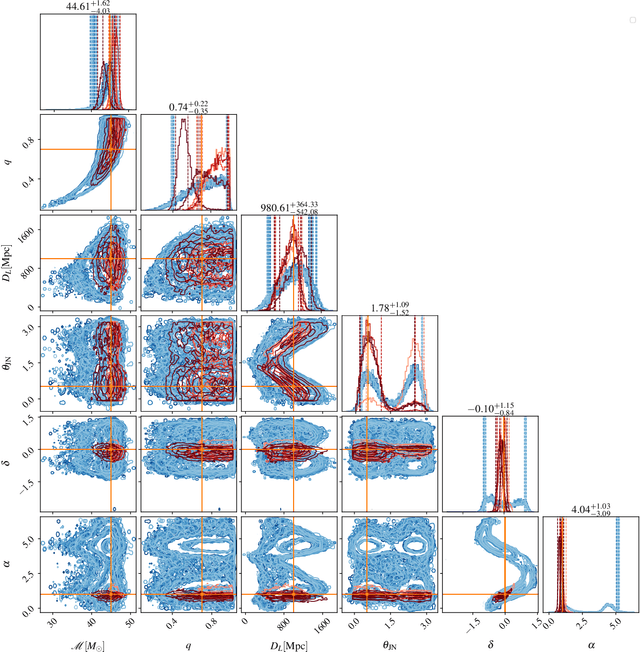
Abstract:We report a gravitational-wave parameter estimation algorithm, AMPLFI, based on likelihood-free inference using normalizing flows. The focus of AMPLFI is to perform real-time parameter estimation for candidates detected by machine-learning based compact binary coalescence search, Aframe. We present details of our algorithm and optimizations done related to data-loading and pre-processing on accelerated hardware. We train our model using binary black-hole (BBH) simulations on real LIGO-Virgo detector noise. Our model has $\sim 6$ million trainable parameters with training times $\lesssim 24$ hours. Based on online deployment on a mock data stream of LIGO-Virgo data, Aframe + AMPLFI is able to pick up BBH candidates and infer parameters for real-time alerts from data acquisition with a net latency of $\sim 6$s.
Applications and Techniques for Fast Machine Learning in Science
Oct 25, 2021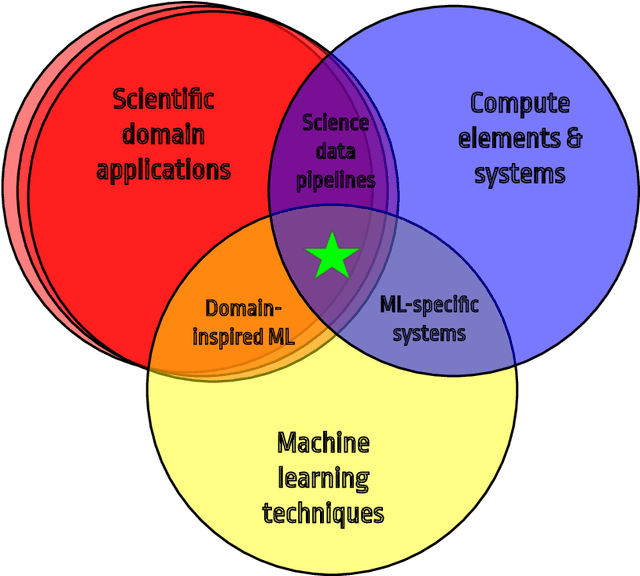
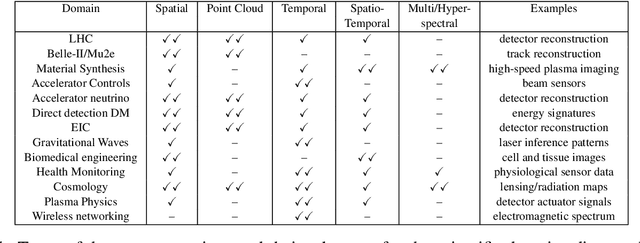
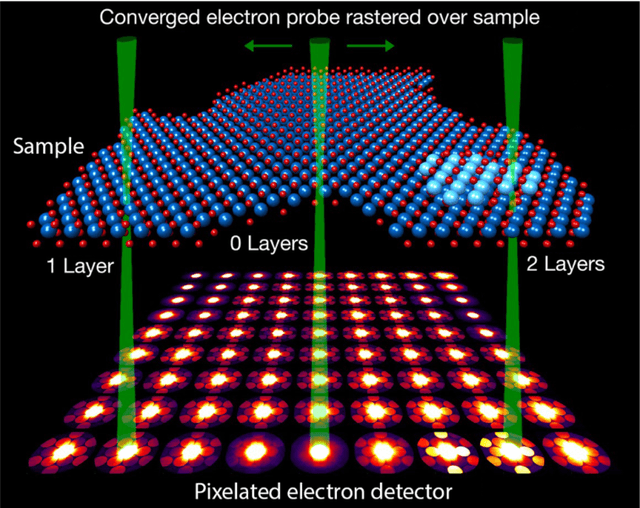

Abstract:In this community review report, we discuss applications and techniques for fast machine learning (ML) in science -- the concept of integrating power ML methods into the real-time experimental data processing loop to accelerate scientific discovery. The material for the report builds on two workshops held by the Fast ML for Science community and covers three main areas: applications for fast ML across a number of scientific domains; techniques for training and implementing performant and resource-efficient ML algorithms; and computing architectures, platforms, and technologies for deploying these algorithms. We also present overlapping challenges across the multiple scientific domains where common solutions can be found. This community report is intended to give plenty of examples and inspiration for scientific discovery through integrated and accelerated ML solutions. This is followed by a high-level overview and organization of technical advances, including an abundance of pointers to source material, which can enable these breakthroughs.
 Add to Chrome
Add to Chrome Add to Firefox
Add to Firefox Add to Edge
Add to Edge